15 Masters in Accounts & Finance Courses in Ireland- Apply Now!
Ireland isn’t just famous for its stunning landscapes and rich history; it’s also a powerhouse in the global financial sector. It employs over 103,500 professionals across more than 8,800 companies and contributes €6.8 billion (INR 632.4 billion) annually in tax revenue. Pursuing a Masters in Finance in Ireland and Masters in Accounting in Ireland offers global career opportunities, with top institutions like Trinity College Dublin and University College Dublin recognized among the world's best.
Graduates can explore roles in banking, investment firms, and multinational corporations, with salaries varying based on experience, specialization, and employer, ranging from €32,000 to €152,000 (INR 29.8L - INR 1.41Cr) annually for senior roles.
This guide explores leading universities, tuition fees, scholarships, and career prospects, assisting you in selecting the ideal program to thrive in Ireland's dynamic finance and accounting sectors.
Explore top Masters in Finance & Accounting programs with upGrad and take your career to new heights.
Key Highlights: Masters in Finance in Ireland & Masters in Accounting in Ireland
| Feature | Details |
| Top Universities |
|
| Duration | 1–2 years |
| Tuition Fees | €32,000 to €152,000 (INR 29.8L - INR 1.41Cr) per year |
| Eligibility |
|
| Scholarships |
|
| Course Structure | Core subjects: Financial Analysis, Investment Banking, Risk Management, Auditing, Taxation, Corporate Finance |
| Job Roles |
|
| Average Salary | €32,000 to €152,000 (INR 29.8L - 1.41Cr) |
| Post-Study Work Permit | Stay Back Visa for 2 years |
| Career Growth | High demand in banking, fintech, investment firms, audit firms, multinational corporations, and financial institutions |
To understand more about the structure and benefits of studying in Ireland, check out the details on the Education System in Ireland.
Masters in Finance & Masters in Accounting Course Structure in Ireland – Subjects & Specializations
A Masters in Finance in Ireland & Accounting in Ireland provides a strong academic foundation combined with practical learning. These programs are designed to equip students with technical expertise, financial acumen, and strategic decision-making skills. With a mix of core modules, specializations, internships, and capstone projects, graduates are well-prepared for careers in banking, auditing, investment management, and corporate finance.
Here's an overview of the typical course structures, subjects, and available specializations:
Masters in Finance: Course Structure and Specializations
A Masters in Finance in Ireland focuses on financial management, investment strategies, risk assessment, and global markets. The program blends theoretical knowledge with practical applications, preparing students for careers in investment banking, corporate finance, and financial analysis.
Core Modules:
- Financial Management: Strategies for effective financial decision-making.
- Corporate Finance and Valuation: Techniques for assessing company value and financial health.
- Financial Markets and Derivatives: Understanding financial instruments and market dynamics.
- Quantitative Methods and Econometrics: Statistical tools for financial analysis.
- Financial Statement Analysis and Ethics: Evaluating financial reports with ethical considerations.
Specializations:
- Investment Management: Focus on portfolio management and asset allocation.
- Risk Management: Strategies to identify and mitigate financial risks.
- International Finance: Study of global financial systems and cross-border transactions.
Example: At Dublin City University (DCU), the MSc in Finance includes core modules such as Economics for Finance, Quantitative Methods and Econometrics, Corporate Finance and Valuation, Financial Markets and Derivatives, and Financial Statement Analysis and Ethics.
Masters in Accounting: Course Structure and Specializations
A Masters in Accounting in Ireland provides in-depth expertise in financial reporting, taxation, auditing, and corporate governance. The program equips students with analytical and regulatory skills, preparing them for careers in public accounting, forensic auditing, and financial consultancy.
Core Modules:
- Advanced Financial Accounting: In-depth study of complex accounting standards.
- Management Accounting: Techniques for internal financial planning and control.
- Taxation: Comprehensive understanding of tax laws and regulations.
- Auditing: Principles and practices of external and internal audits.
- Corporate Governance: Frameworks ensuring accountability in corporations.
Specializations:
- Forensic Accounting: Detecting and preventing financial fraud.
- Tax Consultancy: Providing expert advice on tax planning and compliance.
- Financial Reporting: Specializing in the preparation and analysis of financial statements.
Example: At University College Cork (UCC), the Master of Accounting program comprises 90 credits, with 60 credits from taught modules and 30 credits dedicated to independent research skills relevant to modern professional accountants.
Program Duration & Structure
Masters in Finance and Accounting programs in Ireland typically span 1 year (full-time) or 2 years (part-time). Full-time study offers an intensive learning experience, while part-time options provide flexibility for working professionals.
| Program Type | Duration | Structure |
| Full-Time | 1 year | Two semesters of coursework + Research project or dissertation |
| Part-Time | 2 years | Coursework spread over extended semesters, allowing work-study balance |
Example: The MSc in Finance at University College Dublin (UCD) Smurfit School offers both one-year full-time and two-year part-time formats, covering core modules in financial management and capital markets.
Capstone Projects and Practical Exposure
Many programs incorporate practical components such as:
- Capstone Projects: Addressing real-world financial challenges.
- Internships: Providing hands-on experience in financial institutions.
- Workshops and Seminars: Featuring industry experts to bridge theory and practice.
Example: At Griffith College, the MSc in Accounting and Finance Management offers elective modules leading to three possible career pathways: Professional Accounting, Finance Professional, and Business Management, along with opportunities to engage with industry through consultancy projects.
Top Universities for Masters in Finance & Masters in Accounting in Ireland
Thinking about pursuing a Masters in Finance or Accounting in Ireland? You’re making a smart choice! Ireland is home to some of the best universities in the world, offering programs that combine academic excellence with real-world industry insights.
With its booming financial sector, strong job market, and international recognition, Ireland is the perfect place to build a career in banking, auditing, investment, or corporate finance.But with so many great options, how do you choose the right university? Don’t worry—we’ve got you covered!
Based on the latest QS World University Rankings by Subject 2025, here are the top universities in Ireland for Masters in Finance and Masters in Accounting:
| University | QS World Ranking (Accounting & Finance) | Notable Programs |
| Trinity College Dublin (TCD) | =60 |
|
| University College Dublin (UCD) | 101–150 |
|
| Dublin City University (DCU) | 151-200 |
|
| University College Cork (UCC) | 301-375 |
|
Eligibility Criteria for Masters in Finance & Masters in Accounting in Ireland
Want to turn numbers into opportunities? Ireland, a thriving financial hub, offers top-tier master's programs in Finance and Accounting, but admission isn't just about applying; it's about standing out. Universities seek candidates with strong academic backgrounds, analytical skills, and proficiency in English.
Here’s what you need to qualify for these prestigious programs.
Eligibility Criteria for Masters in Finance in Ireland
- Academic Qualifications: Applicants should hold a Level 8 honours degree (minimum 2.2) in finance or a related field.
- English Language Proficiency:
For non-native English speakers, universities in Ireland require proof of language proficiency through standardized tests. The commonly accepted minimum scores are as follows:
Other Key Requirements:
- Work Experience: Not mandatory, but relevant experience in finance, banking, or investment may strengthen your application.
- Statement of Purpose (SOP): A well-written essay explaining your academic background and career goals.
- Letters of Recommendation (LORs): Usually 2-3 from professors or employers.
Eligibility Criteria for Masters in Accounting in Ireland
- Academic Qualifications: Applicants must have at least a Second Class Honours Grade I in a primary honours degree (NFQ, Level 8) with a significant accounting specialization and expect to qualify for exemption from the CA Proficiency 1 examination of Chartered Accountants Ireland (CAI).
- English Language Proficiency:
Similar to finance programs, non-native speakers should present:
| Test | Minimum Score Required |
| IELTS | 6.5 (Overall) |
| TOEFL | 90 |
| PTE | 63 |
Other Key Requirements:
- Professional Exemptions: Many programs offer exemptions from accounting certification exams such as ACCA, CPA, or CAI.
- Work Experience: Not always required, but beneficial for competitive applications.
- SOP & LORs: Similar to finance programs, a strong Statement of Purpose and recommendation letters can enhance your application.
Note: GMAT/GRE: Generally not required, but some universities may consider scores for competitive applications.
How to Apply for a Masters in Finance or Accounting in Ireland? – Application Process
Applying for a Masters in Finance or Accounting in Ireland involves several key steps. Most universities have an online application system, and admission is based on academic qualifications, test scores, and supporting documents.
Step-by-Step Application Process to Apply for a Masters in Finance or Accounting in Ireland:
| Step | Details |
| 1. Choose a Program & University | Research universities offering Masters in Finance or Accounting based on curriculum, rankings, and career opportunities. |
| 2. Check Eligibility Criteria | Ensure you meet academic requirements, English proficiency scores, and work experience (if applicable). |
| 3. Prepare Required Documents | Gather necessary documents, which typically include:
|
| 4. Submit Online Application | Apply via the university’s portal and pay the application fee (if required). |
| 5. Appear for Interviews (If Required) | Some universities conduct online interviews to assess candidates. |
| 6. Receive Offer Letter | If accepted, you will receive a conditional or unconditional offer letter. |
| 7. Accept Offer & Pay Deposit | Secure your admission by paying the required tuition deposit. |
| 8. Apply for Student Visa | International students need an Ireland student visa (Stamp 2) to study in the country. |
Read more about Intakes in Ireland in this guide.
Cost of Studying Masters in Finance & Accounting in Ireland – Tuition Fees & Living Expenses
Dreaming of earning a globally recognized Masters in Finance or Accounting in Ireland? While the country offers world-class education and career prospects, understanding the financial investment is crucial. For Indian students, tuition fees typically range between €15,000 – €22,000 per year (INR 12.75L – INR 18.7L), with living costs adding another €10,000 – €20,000 (INR 8.5L – INR 17L) annually.
From tuition to daily expenses, planning ahead can make your study-abroad journey smoother. The good news? Scholarships and part-time work opportunities can help ease the financial load!
Tuition Fees
Investing in a Masters in Finance or Accounting in Ireland means gaining access to top-tier universities, global networking opportunities, and strong career prospects.
Below is an overview of tuition costs for some of Ireland’s leading institutions.
| University | Program | Tuition Fee (2025/26) |
| Trinity College Dublin |
|
|
| University College Cork (UCC) |
|
|
| University College Dublin (UCD) |
|
|
| Dublin City University (DCU) |
|
|
Note: Tuition fees are subject to change annually. It's advisable to consult the official university websites for the most current information.
Check out: Cost of Studying in Ireland for Indian Students – Fees & More
Estimated Monthly Living Expenses in Ireland
The cost of living in Ireland depends on factors like city of residence, accommodation type, and personal spending habits. Here's a breakdown of the estimated monthly costs for international students:
| Expense Category | Estimated Monthly Cost (€) | Equivalent in INR (₹) |
| Accommodation (Rent & Utilities) | €600 – €1,200 | INR 56,000 – INR 1,02,000 |
| Food & Groceries | €250 – €400 | INR 21,000 – INR 34,000 |
| Transportation (Public & Private) | €50 – €150 | INR 4,200 – INR 12,700 |
| Health Insurance | €50 – €100 | INR 4,200 – INR 8,500 |
| Internet & Mobile Bills | €40 – €70 | INR 3,400 – INR 6,000 |
| Miscellaneous (Leisure, Personal Expenses, Books, etc.) | €100 – €250 | INR 8,500 – INR 21,000 |
| Total Estimated Monthly Cost | €1,090 – €2,170 | INR 92,300 – INR 1,84,200 |
Note: The above estimates are approximate and can vary based on individual choices and economic conditions. Exchange rates are subject to fluctuations; the current conversion is €1 = ₹93.
Check out: Cost of Living in Dublin – Tuition Fees, Rent & More
Annual Living Costs
Based on the monthly estimates, the annual living costs would range between €10,000 and €20,000 (INR 9.3L- INR 18.6L). This aligns with figures provided by the International Student Cost of Living Guide, which estimates living expenses for students in Ireland to be within this range.
Additional Considerations
- Location: Living expenses are generally higher in cities like Dublin compared to smaller towns or rural areas.
- Accommodation Type: On-campus housing may differ in cost compared to private rentals or shared accommodations.
- Lifestyle Choices: Personal spending habits significantly influence overall expenses.
Scholarships & Financial Aid for Masters in Finance & Masters in Accounting in Ireland
Financing your Masters in Finance or Accounting in Ireland can be made easier with scholarships and financial aid options. Many universities, government bodies, and private organizations offer funding to support international students, including those from India. Scholarships can cover tuition fees, living expenses, or both, making education in Ireland more affordable. You can explore scholarship opportunities in Ireland to make your journey more cost-effective.
Below are some of the top scholarship opportunities available:
| Scholarship Name | Award Amount | Eligibility |
| UCD Smurfit School MBA Scholarship | Up to 50% tuition fee waiver | Merit-based, awarded to high-achieving students applying for the MBA program |
| Trinity MBA Scholarships | Up to €10,000 (INR 9.3L) | Awarded based on academic excellence and leadership potential |
| NUI Galway International Student Scholarships | Up to €4,000 (INR 3.72L) | Available for non-EU international students based on merit |
| UCC Excellence Scholarship | €5,000 (INR 4.65L) | Awarded to academically outstanding international students |
| Government of Ireland International Education Scholarship | €10,000 (INR 9.3L) stipend + full tuition waiver | For non-EU/EEA students pursuing a master’s or PhD in Ireland |
Application Tips:
- Early Application: Scholarships are often awarded on a rolling basis; applying early can enhance your chances.
- Eligibility Criteria: Carefully review the specific requirements for each scholarship to ensure you qualify.
- Comprehensive Documentation: Prepare all necessary documents, including academic transcripts, letters of recommendation, and personal statements, to strengthen your application.
Career Opportunities After Masters in Finance & Accounting in Ireland – Jobs & Salaries
With a booming financial sector and a strong corporate ecosystem, Ireland offers excellent career prospects for finance and accounting graduates. The country is home to leading banks, investment firms, multinational corporations, and global consultancy firms, providing diverse job opportunities with competitive salaries.
Graduates from top universities in Ireland can secure roles in financial analysis, investment banking, risk management, and auditing, paving the way for a rewarding international career.
To learn more about Job Opportunities in Ireland after your master's, check out this guide.
Top Job Roles & Average Salaries
A Masters in Finance or Accounting in Ireland opens doors to lucrative career opportunities in top financial firms, multinational corporations, and consulting firms. Graduates can explore roles in investment banking, risk management, taxation, and corporate finance, with competitive salaries ranging from €32,000 to €152,000 (INR 29.8L - 1.41Cr) per year.
Below is a breakdown of top job roles and their average salaries in Ireland.
| Job Role | Average Salary (Annual) EUR | Average Salary (Annual) INR |
| Financial Analyst | €32K - €56K/yr | INR 29.7L - INR 52.1L/yr |
| Investment Banker | €92K - €152K/yr | INR 85.6L - INR 1.41Cr/yr |
| Risk Manager | €42K - €80K/yr | INR 39.1L - INR 74.4L/yr |
| Auditor | €33K - €59K/yr | INR 30.7L - INR 54.9L/yr |
| Tax Consultant | €39K - €56K/yr | INR 36.3L - INR 52.1L/yr |
| Financial Controller | €67K - €105K/yr | INR 62.3L - INR 97.7L/yr |
| Management Accountant | €51K - €67K/yr | INR 47.4L - INR 62.3L/yr |
| Treasury Analyst | €39K - €57K/yr | INR 36.3L - INR 53.0L/yr |
| Wealth Manager | €58K - €79K/yr | INR 53.9L - INR 73.5L/yr |
Source: Glassdoor
Job Market & Demand in Ireland
- Finance & Accounting roles are in high demand, particularly in Dublin, Cork, and Galway.
- Ireland’s financial sector contributes over €6.8 billion (INR 632.4 billion) in tax revenue, making it a global financial hub.
- Big Four firms (PwC, EY, Deloitte, KPMG) actively hire accounting and finance graduates, offering competitive salaries and career growth.
Also read: Jobs in Ireland for Indians: Top Recruiters, Highest Paying Jobs
Top Companies Hiring Finance & Accounting Graduates in Ireland
Ireland hosts a thriving financial sector with leading banks, multinational corporations, and top consulting firms actively seeking finance and accounting professionals. With global giants and renowned firms establishing their European headquarters here, graduates have excellent career prospects in roles spanning investment banking, auditing, taxation, and financial consulting
| Company | Industry | Roles Offered |
| PwC Ireland | Audit, Tax, Consulting | Auditor, Tax Consultant, Risk Analyst |
| EY Ireland | Financial Services | Financial Analyst, Forensic Accountant |
| Deloitte | Consulting & Advisory | Management Accountant, Risk Manager |
| KPMG Ireland | Audit & Financial Advisory | Corporate Finance Analyst, Auditor |
| Bank of Ireland | Banking & Finance | Investment Banker, Treasury Analyst |
| Allied Irish Banks (AIB) | Commercial Banking | Credit Risk Analyst, Financial Controller |
| Citibank | Investment Banking | Financial Analyst, Wealth Manager |
| JP Morgan Ireland | Financial Services | Risk Manager, Investment Analyst |
| State Street Corporation | Asset Management | Fund Accountant, Financial Reporting Analyst |
| Irish Life | Insurance & Wealth Management | Actuary, Finance Manager |
Why Ireland for Finance & Accounting Careers?
- Presence of Global Financial Hubs – Dublin is a major European financial center.
- Big Four Accounting Firms – Ireland serves as a key hub for PwC, EY, Deloitte, and KPMG.
- Growing Fintech Sector – Ireland is rapidly becoming a fintech and banking technology hub.
To learn more about why Ireland is an ideal destination for your studies and career, check out this guide on why study in Ireland.
How to Choose the Right Masters in Finance or Accounting Program in Ireland?
With multiple universities offering Masters in Finance and Masters in Accounting in Ireland, selecting the right program can be overwhelming. Here’s how you can make the best choice based on your career goals, budget, and academic interests.
1. Define Your Career Goals
- Choose Masters in Finance in Ireland if you're interested in investment banking, asset management, or risk analysis.
- Opt for Masters in Accounting in Ireland if you aim to become a Chartered Accountant, Auditor, or Tax Consultant.
2. Check University Rankings & Accreditation
- Look for globally recognized universities like Trinity College Dublin, UCD Smurfit, and University College Cork that rank high for finance and accounting programs.
- Ensure the program is accredited by bodies like ACCA, CFA Institute, or Chartered Accountants Ireland (CAI).
3. Compare Course Structure & Specializations
| Program Feature | Masters in Finance | Masters in Accounting |
| Core Focus | Financial markets, investments, risk management | Auditing, taxation, corporate governance |
| Specializations Available | Investment Banking, FinTech, Risk Management | Forensic Accounting, Tax Consultancy, IFRS |
| Industry Certifications | CFA, FRM | ACCA, CAI, CPA |
4. Consider Tuition Fees & Scholarships
- Tuition fees range from €18,000 – €30,000 (INR 16.7L – INR 27.9L) per year, so check for scholarships like the Government of Ireland International Education Scholarship or university-specific funding.
5. Evaluate Career Prospects & University Placements
- Research graduate employment rates and placement partnerships with Big Four firms and financial institutions.
- Look at alumni success stories and industry collaborations.
Why Choose upGrad for Masters in Finance & Accounting in Ireland?
Choosing the right platform for your higher education is crucial for your career trajectory. upGrad offers a comprehensive pathway to pursue a Masters in Finance or Masters in Accounting in Ireland, providing numerous advantages tailored to your professional growth.
- Diverse Program Selection: Collaborations with top Irish institutions ensure a variety of finance and accounting programs to match your career goals.
- Industry-Aligned Curriculum: Courses focus on real-world skills like financial modeling, investment strategies, and compliance, preparing you for global finance roles.
- Flexible Learning Options: Choose from online and blended learning formats to fit your studies around personal and professional commitments.
- Comprehensive Career Support: Gain career-building resources, including resume workshops, interview prep, and networking opportunities in finance and accounting.
- Global Recognition: Degrees from upGrad’s partner universities are globally respected, opening doors to international career opportunities.
By choosing upGrad for your master's studies in Ireland, you're investing in a platform that combines academic excellence with practical experience, setting the foundation for a successful career in finance or accounting. Study abroad with upGrad and unlock your potential.
- Level of study
- Streams
- Countries
- Cities
- Fees
- Exams Accepted
- Course Duration
- Masters
- Clear All
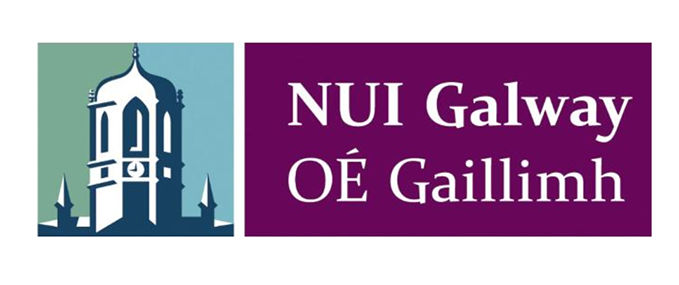
International Accounting and Analytics - Pathway B (MSc)
National University of Ireland Galway, Ireland
DURATION
1 YearFEES
INR 15.24L/yrEXAMS
IELTS-6.5INTAKE SESSION
JAN 2026
More courses at National University of Ireland GalwayView All
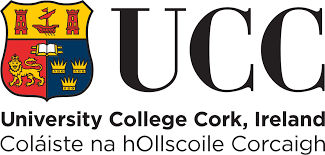
Masters in Accounting (MACC)
University College Cork, Ireland
DURATION
1 YearFEES
INR 16.07L/yrEXAMS
IELTS-6.5INTAKE SESSION
SEP 2025
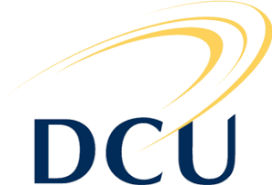
Master of Science in Accounting
Dublin City University, Ireland
DURATION
1 YearFEES
INR 12.86L/yrEXAMS
IELTS-6.5INTAKE SESSION
SEP 2025
More courses at Dublin City UniversityView All
DURATION
1 YearFEES
INR 13.90L/yrEXAMS
IELTS-6.5
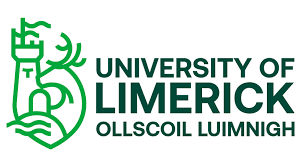
Masters/PhD in Accounting & Finance
University of Limerick, Ireland
DURATION
2 YearsFEES
INR 19.91L/yrEXAMS
IELTS-6.5INTAKE SESSION
SEP 2025
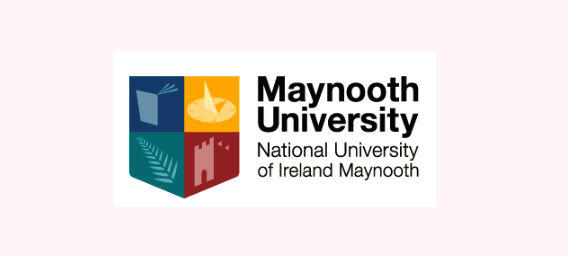
Master of Arts in Accounting (1 Year)
Maynooth University, Ireland
DURATION
1 YearFEES
INR 13.03L/yrEXAMS
IELTS-6.5INTAKE SESSION
SEP 2025
More courses at Maynooth UniversityView All
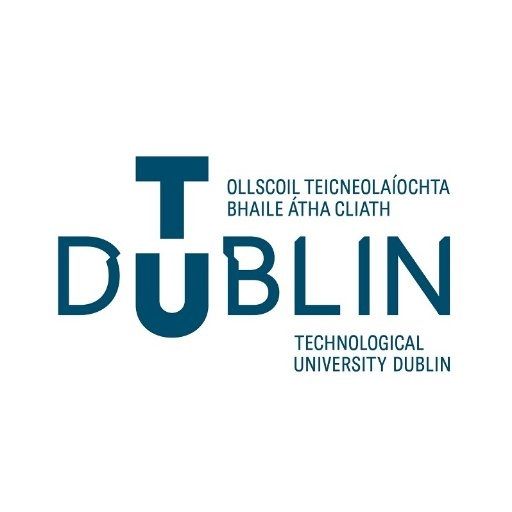
PGDip Accounting
Technological University Dublin (TU Dublin), Ireland
DURATION
1 YearFEES
INR 9.55L/yrEXAMS
IELTS-6.5INTAKE SESSION
SEP 2025
More courses at Technological University Dublin (TU Dublin)View All
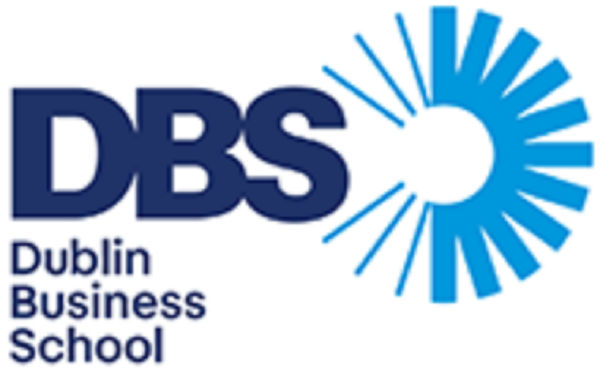
Master of Science (MSc) International Accounting & Finance (Level 9)
Dublin Business School, Ireland
DURATION
1 YearFEES
INR 11.07L/yrEXAMS
IELTS-6.0INTAKE SESSION
SEP 2024
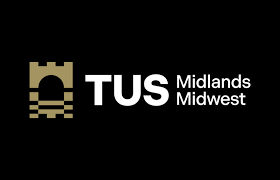
Master of Arts in Accounting
Technological University of the Shannon- Midlands Midwest, Ireland
DURATION
1 YearFEES
INR 12.59L/yrEXAMS
IELTS-6.0INTAKE SESSION
SEP 2025
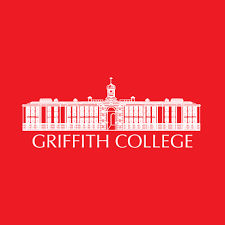
Postgraduate Diploma in Accounting and Finance Management
Griffith College Ireland, Ireland
DURATION
1 YearFEES
INR 10.42L/yrEXAMS
IELTS-6.5INTAKE SESSION
SEP 2024
More courses at Griffith College IrelandView All
Recommended articles for you
TRENDING SEARCHES
- Cork Institute of Technology
- Institute of Technology Carlow
- University College Dublin
- Dublin Business School
- South East Technological University Carlow
- National University of Ireland Galway
- Trinity College Dublin
- Institute of Technology Sligo
- Maynooth University
- Letterkenny Institute of Technology
- National College of Ireland
- University College Cork
- Griffith College Ireland
- University of Limerick
- Dublin City University
- Waterford Institute of Technology
Disclaimer
All information provided on this page is for general use and upGrad Abroad is not responsible for any errors or omissions. The Universities involved in this Program are accredited/recognized in the countries where they are established. Relevant terms and conditions apply.Any action taken upon the information found on this website is strictly at your own risk.

